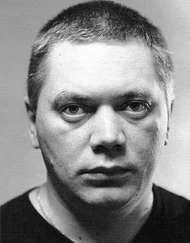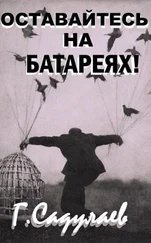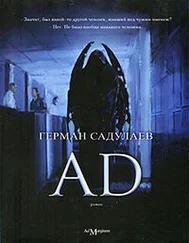Recently I’ve been choosing stations that play rap, hip-hop, or just kolbasa pop without lyrics. The moment I hear the opening chords of a contemporary Russian pop song, I have an irresistible urge to puke all over the dashboard. I devoted many years to rock and roll and was always its biggest fan and connoisseur, but my brand loyalty exhausted itself and has now ricocheted in the opposite direction.
At first I used to be surprised when I heard about a real rock band putting on a joint concert with some commercialized pop act. Or when it would team up with some plastic pop group and go on tour to raise money for the president—yours, theirs, ours, “Nashists’”—and the party in power. Or when it went out to that stinking lakeside campground to perform for rowdy enthusiasts amassed at the big pro-Kremlin youth brigade’s annual rally. [6] Translator’s note : The reference is to the pro-government youth group Nashi—which means “ours” in Russian—and to its annual rally. The author might well be pointing out the happy accident of this name’s morphological similarity to “Nazi”—and Nashist to “fascist,” for that matter.
Then I realized that it was unfair to Russian rock musicians to expect them to hew exclusively to their aesthetic principles and commit themselves to being engaged citizens. Why should they? They’re not doing anything earthshaking, after all. They’re simply paid by the hour to entertain people—as a rule, slackers in synthetic leather jackets drinking beer out of big PVC bottles. The ones whose parents have better salaries listen to R&B—which no longer signifies “Rhythm and Blues,” by the way; this new music has nothing to do with real Rhythm and Blues—now it means “Rich and Beautiful.”
No ideas in music now—just marketing.
On the whole, pop rock fulfills one social and political function—to take away people’s ability to think. In a country where consumer demand increases as production decreases, where elections offer no real choice, and where no yardstick can measure the abyss that awaits, there’s no need for people who can use their heads. They’re useless, annoying, dangerous.
In an earlier era, they used to ban genetics and cybernetics; now it’s garden-variety formal logic that’s off limits. Because if a person starts thinking about things using simple syllogisms, it’s obvious where it can lead: to revolutionary thoughts. And revolution is a crime. So people need to be protected from logic.
Both the singer Mak$im on the one hand, and the group B-2 on the other, dispense with logical ways of thinking. It’s not that their lyrics make no sense; but any meaning they might have just slips away, no matter how much you concentrate. These days it’s just impossible to figure out who it was that loved whom, and why they broke up, and then, if the song is so sad, then why are the singers all smiling? Rampant postmodernism. And, actually, Mak$im is better than B-2. Because no one needs these things to make sense. They just have to be a little sad, like how you feel after your second glass of vodka, but positive overall, you know, not too heavy. No need to strain your brain.
Modern art doesn’t march at the head of a crowd waving a banner, nor does it thrust its mighty prow through ice-bound seas; it issues no summons, has no regrets, cries no tears. Modern art stands by the side of the road with a bottle of uncarbonated mineral water in its uplifted hand, and when a car pulls over, it leans over and calls into the open window, “Cool drink, anyone?”
Nowadays it’s only the occasional rapper who might come up with some interesting lyrics and some semblance of content. There is no real rock and roll any more, and there hasn’t been for a long time; what we have instead is rap. And kolbasa without lyrics is ideal precisely because there are no words: perfect for driving.
You can of course listen to megahits and oldies. Of course you can. But how many times can you listen to the same ones? I even know all the newer songs by heart. The old ones are just overkill, brainwashing. “Hotel California” is a great song. No question about it. And the first one thousand six hundred eighty-four or so times I heard it I really liked it. Then I was forced to listen to it three thousand more times. At that point I think my enthusiasm dimmed just a bit. Another couple thousand more times, and now my system goes into anaphylactic shock at the first chords.
All the good old rock and roll, the Beatles, the Rolling Stones, Led Zeppelin, even Pink Floyd, sets my teeth on edge. It’s no one’s fault. It’s just that rock and roll didn’t count on our longevity. Live hard, die young! But we clung to life and overstayed our welcome.
By the time my thoughts reached that point, I had switched over to the CD player, and Kurt Cobain’s voice filled the speakers. Now there’s someone who did it right.
Nirvana took me as far as the warehouse complex, where I parked in front of the office.
Inside, complete bedlam: Buried in papers, the girl at the front desk was pounding manically on her computer keyboard, correcting invoices. The room was packed full of city delivery drivers, and the noise of their grumbling filled the air. I fought my way through to the girl and asked:
“Where’s the warehouse manager? The deputy manager? Where is everyone?”
“They’re all out at the loading dock. Gone, every last one, the sons of bitches. Leave me alone! Don’t come near me! Don’t ask me anything! Fuck off, all of you!”
“Okay, fine. I’m almost done, I’ll be out of here in a minute—can I use your phone?”
“Fuck you!”
“All right, okay.”
I left the office and lit a cigarette. What was going on out here? Of course there’s always something going wrong with deliveries; there are software breakdowns, and human error, and before you know it you’re reinventing the space shuttle from scratch, piece by piece, all by yourself. But this chaos was way beyond normal. And not a single manager in the office.
I finished my cigarette and tossed the butt into the urn by the door, crossed the road, and entered the warehouse complex. A forty-foot refrigerated container truck stood at the loading dock, with workers swarming around. Everything looked normal there.
But when I climbed up onto the loading dock and approached the container in question, I realized that it was hardly business as usual. In fact nothing was as usual.
The workmen were moving like sleepwalkers, gliding along with a weird kind of grace, tracing slow-motion dance steps. Their eyes were wide open and they radiated an air of perfect bliss. This obvious state of grace was having a markedly deleterious effect on their efficiency, however. I watched one young guy in blue overalls for several minutes. He would pick up a box in the container, carry it to the forklift, set it down there, and then straighten up. Then he would bend down again and pick up the same box and carry it right back into the container. There he would set it down in the row of boxes, straighten up, again bend over, pick up the same box, and carry it back over to the forklift.
The workers took no notice of my presence. I don’t think they’d have noticed Godzilla arriving on the scene, let alone some clerk from the central office.
Trying to avoid colliding with the mesmerized workers, I made my way over to the foreman’s booth and peered in through the window, where I beheld an even more curious and striking scene. The foreman—a genuine Frenchman named Jean whose parents the Unclean Spirit had lured into the USSR via the Comintern and abandoned there to gasp their lives away during the era of reforms—was sitting inside the booth. No shirt, “topless,” if you can apply that term to a man’s hairy chest.
Читать дальше












